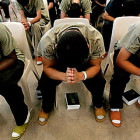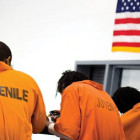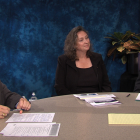
Controversial ‘Abstinence Only’ Sex Ed Law Draws Praise, Criticism in Tenn.
|
Earlier this month, Tennessee Gov. Bill Haslam signed a controversial new sex education law. According to the bill, the new law “exclusively and emphatically promotes sexual risk avoidance through abstinence” and forbids teachers from mentioning “gateway sexual activity” in the state’s sex education courses. The freshly inked legislation, known as HB 3621 in the state’s House of Representatives and SB 3310 in the Senate, bars teachers from discussing sexual activity such as genital touching as alternatives to intercourse. Under the new law, which passed with large majorities in both chambers, instructors and organizations may be fined $500 for discussing so-called gateway sexual activity in sex education classes. Reactions to the bill, as well as what “gateway sexual activity” entails, have been mixed.










